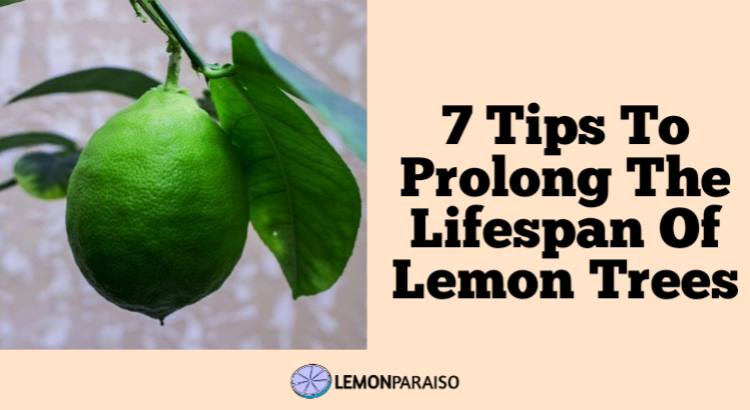How Long Do Lemon Trees Live? (How To Prolong The Lifespan)

Lemon trees, with their vibrant green leaves, fragrant blossoms, and bright yellow fruit, are an enticing addition to any home garden or orchard. These versatile trees not only produce delicious lemons but also act as a beautiful ornamental centerpiece.
As you embark on your journey of growing and nurturing lemon trees, understanding their lifespan and factors that contribute to it can help you maximize your efforts and enjoy their bountiful harvests for years to come.
How long do lemon trees live?
Lemon trees can live for a relatively long time, with many thriving for 50 to 100 years or more. However, their productivity and vigor may decline with age, especially if they aren’t properly cared for.
To ensure a long, fruitful life, regular maintenance such as pruning, fertilizing, and pest control is essential. By taking good care of your lemon tree, you can enjoy its beauty and lemons for generations.
What factors affect the lifespan of a lemon tree?
Several factors can impact the lifespan of a lemon tree, including its environment, care, and susceptibility to diseases and pests. Trees grown in ideal conditions with well-drained soil, adequate sunlight, and proper watering are more likely to live longer.
Additionally, regular pruning and fertilizing, as well as early detection and treatment of diseases and pests, can greatly improve the overall health and longevity of your lemon tree.
How can I increase the lifespan of my lemon tree?
To increase the lifespan of your lemon tree, provide it with optimal growing conditions, such as well-drained soil, full sun exposure, and proper watering.
Implementing a regular maintenance routine that includes pruning, fertilizing, and monitoring for diseases and pests will also contribute to the tree’s health and longevity. By taking these steps, you can help your lemon tree thrive and produce delicious fruit for years to come.
At what age do lemon trees start producing fruit?
Lemon trees typically begin producing fruit when they are around three to five years old. However, the exact age can vary depending on factors such as the tree’s variety, growing conditions, and overall health.
With proper care and maintenance, your lemon tree should continue to yield an abundance of fruit throughout its productive years.
How can I tell if my lemon tree is approaching the end of its lifespan?
Signs that a lemon tree is approaching the end of its lifespan include reduced fruit production, overall decline in tree health, and the appearance of dead or dying branches.
A tree that has become more susceptible to diseases and pests, or has experienced significant damage from weather or other factors, may also be nearing the end of its life. Keep a close eye on your tree’s health and consult with a professional arborist if you’re concerned about its condition.
Is it possible to propagate new lemon trees from an older tree?
Yes, it is possible to propagate new lemon trees from an older tree using methods such as air layering or rooting cuttings.
This allows you to grow a new tree that retains the desirable traits of the parent tree, such as fruit flavor and growth habits. Propagation can be a great way to continue enjoying the benefits of your lemon tree, even as the original tree ages.
What are the signs that it’s time to replace my lemon tree?
When your lemon tree shows signs of decline, such as reduced fruit production, increased susceptibility to diseases and pests, or significant damage to the trunk or branches, it may be time to consider replacing it.
Consult with a professional arborist to determine if the tree can be saved, or if planting a new tree is the best option.
What are some tips for caring for an older lemon tree?
Caring for an older lemon tree involves providing it with the necessary nutrients, water, and sunlight to thrive. Regular pruning can help remove dead or damaged branches and encourage new growth, while proper fertilization ensures that the tree has the nutrients it needs.
Monitoring the tree for signs of diseases and pests is essential, as older trees may be more susceptible to these issues. Additionally, maintaining a stable environment and avoiding sudden changes in temperature or soil conditions can also contribute to the overall health and longevity of your older lemon tree. By following these tips and practicing good tree care, you can help your lemon tree continue to thrive and produce fruit well into its later years.


